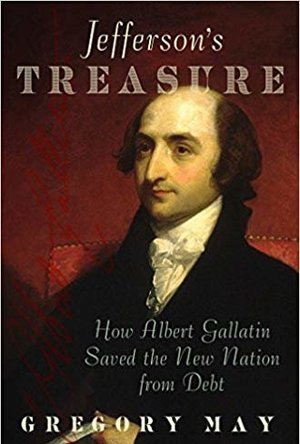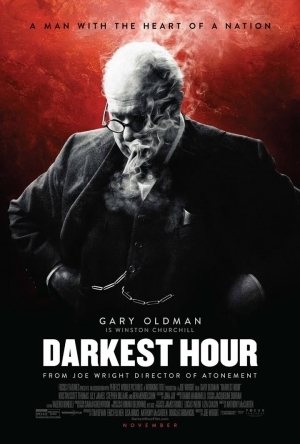
ColRegs: Rules of the Road for all Seagoing Sail and Power Vessels
Education and Navigation
App
Quick learning & revision tool, over 100 graphics, for all seafarers worldwide. "... a brilliant...

ColRegs: Nav Lights & Shapes for Boating and Sailing
Education and Navigation
App
Quick learning & revision tool, over 100 graphics, for all seafarers - this sailing, boating &...
Cynthia Armistead (17 KP) rated More Holmes for the Holidays in Books
Mar 1, 2018
"The Christmas Gift" by Anne Perry is a nice little piece about a stolen Stradivarius and a couple who want to marry against the wishes of the young lady's father. There is an excellent red herring, one of the few in this anthology.
In "The Four Wise Men" by Peter Lovesey, Watson must answer a call to duty from his former commanding officer in the Army, in order to help guard a medieval treasure in a Christmas pageant. The game is soon afoot, and Sherlock's powers of observation are as keen as ever.
Barbara Paul's "Eleemosynary, My Dear Watson" gives Holmes a jewel theft and a kidnapping to solve, which he does in his inimitable way. One clue seemed slightly too obvious to me, but it may not to other readers.
In "The Adventure of the Greatest Gift" by Loren D. Estleman, Holmes receives a wax cylinder containing a recording of a song popular in America. He takes it as a warning of a crime which could lead to war between Britain and France, and of course he leaps into action. This is Mycroft Holmes' only appearance in the volume.
There's plenty of misdirection in "The Case of the Rajah's Emerald" by Carolyn Wheat. Somehow, though, I suspected one of the great revelations in this one from the beginning, but I couldn't tell you exactly why. It didn't ruin the story for me, and there was still a surprise at the end.
On the other hand, Edward D. Hoch's "The Christmas Conspiracy" managed to take me completely unawares. I couldn't fathom why the crime would be committed or by whom, despite having a major clue dropped by one character. Very well done!
"The Music of Christmas" by L.B. Greenwood telegraphed the identity of the criminal from the start, but was well worth reading. One of the characters also tugged at the heartstrings.
Bill Crider's "The Adventure of the Christmas Bear" is largely memorable because of the appearance of Oscar Wilde as a character.
"The Adventure of the Naturalist's Stock Pin" by Jon L. Breen gives us Charles Darwin as Holmes' client. The mystery is less Sherlockian than some of the others, but I didn't mind reading it.
Daniel Stashower's "The Adventure of the Second Violet" was an interesting twist on a well-known Christmas story. I cannot say more without spoiling it, but he has a nice touch.
"The Human Mystery" by Tanith Lee is as dark as I expect from her, and was a depressing ending to the collection. It was, however, very well-written.
The anthology left me hungry for more Holmes, and wishing that I weren't between seasons of BBC's Sherlock or that I had another collection of stories on hand. That's the sign of a success, I think.

Topo GPS Finland
Navigation and Travel
App
Makes from your iPhone/iPad a complete GPS device with the detailed topographic map of Finland...

Topo GPS Netherlands
Navigation and Travel
App
Makes from your iPhone/iPad a complete GPS device with the detailed topographic map of The...
Sassy Brit (97 KP) rated Jefferson's Treasure: How Albert Gallatin Saved the New Nation from Debt in Books
Jun 5, 2019
So who was this man that undid Alexander Hamilton’s fiscal system, rejecting it along with Madison and Jefferson? Because both Presidents did not understand the financial system, they depended on Gallatin to reform it. Gallatin arrived in America in 1790 from Geneva and rose up to become a trusted advisor of the Republicans. Six years before Jefferson was elected President, Gallatin’s Pennsylvania neighbors rebelled against the tax on whiskey. He supported them in principle but opposed the violence that ensued, burning the local tax collector’s house, robbing the mail, and marching on Pittsburgh.
The play “Hamilton” uses revisionist history. The real Hamilton believed in big government and wanted to continue funding federal deficits. He based his theories on the British who used the money to fund their large military conflicts, believing that the ability to borrow endless amounts of money would allow the new United States to become a great nation. Jefferson and Madison thought Hamilton’s system, straight from the British way, was tainted with tyranny. As May noted, “It made the people pay obnoxious taxes in order to fund interest payments on a mounting federal debt and the costs of an expensive military establishment. It shifted money from ordinary taxpayers to the relatively few rich men who held the government’s bonds. That was just the sort of thing that had led Americans to revolt against Britain in the first place.”
May believes, “The hip-hop immigrant hero of the Broadway musical is a myth. The musical might be a great work of art, but is relies on misconceptions of Hamilton. He was not an immigrant, but a migrant within the British Empire. Also, he was not a man of the people, as Gallatin was, but an elitist.”
While Hamilton committed to paying only the interest on the government’s debt, Gallatin committed the government to repaying fixed amounts of the principal each year. He also insisted that the government should never spend more than it earned except in times of war. By slashing federal expenses, Gallatin was able to get rid of the tax on whiskey and abolish the entire internal revenue service.
The Republicans, an agrarian society, distrusted these elitists where two-thirds of the government debt belonged to a few hundred very wealthy men residing mainly in Philadelphia, New York, and other mercantile cities. They saw Hamilton’s plan of collecting taxes from ordinary citizens as a way for a few rich men to become even wealthier. Implementing these excise taxes required government officials to inspect, quantify, and mark the items subject to tax.
The Hamilton system benefited the wealthy debt holders and spectators at the expense of the average taxpayer who had to pay the interest. The government would borrow more than the people could pay. Hamilton tried to hide how much money the government was actually spending and spiraled the debt higher and higher.
This was an important part of the British tax base, and “I wanted to show how unpopular it was. Hamilton and company were resented because they created a tax collection network that affected the lives of ordinary citizens. The excise tax is a form of internal taxation, while tariffs are a form of external taxation that fell on the well to do. Remember mostly the well to do bought imports. The Republicans once they came to power relied on import duties rather than excise taxes.”
May further explained, “When Jefferson and his administration came to power it was Gallatin who got rid of Hamilton’s deficit finance system and cut taxes. By the time he has left office he has repaid half the federal debt and set up a program for repaying the rest.”
Anyone who wants to understand the early economic systems of the Founding Fathers will enjoy this book. It shows how Gallatin, by killing Hamilton’s financial system, abolished internal revenue taxes in peacetime, slashed federal spending, and repaid half of the national debt.

Topo GPS Sweden
Navigation and Travel
App
Makes from your iPhone/iPad a complete GPS device with the detailed topographic map of Sweden....

Topo GPS New Zealand
Navigation and Travel
App
Makes from your iPhone/iPad a complete GPS device with the detailed topographic map of New Zealand...

Scout Outdoor-Navigation für Radfahren und Wandern
Navigation and Health & Fitness
App
Scout is your iPhone companion for outdoor activities. Make use of topographic maps for hiking...
Bob Mann (459 KP) rated Darkest Hour (2017) in Movies
Sep 29, 2021
It’s 1940 and Western Europe is under siege. Neville Chamberlain (Ronald Pickup, “The Second Best Exotic Marigold Hotel“) is the Conservative Prime Minister but is voted out of office in an attempt to form a grand coalition government with Labour leader Clement Atlee (David Schofield). Despite appearing a shoe-in for the role, Viscount Halifax (Stephen Dillane) turns it down, thinking that his alternative (and bête noire) would drink from the poisoned chalice and be quickly be out of his (and Chamberlain’s) hair. For that alternative choice is the volatile and unpredictable Churchill (Gary Oldman), grudgingly invited into the job by King George VI (Ben Mendelsohn, “Rogue One“). With the Nazi’s bearing down on the 300,000 encircled troops at Dunkirk, and with calls from his war cabinet to capitulate and seek terms of settlement, this is indeed both Churchill’s, and the country’s, ‘darkest hour’.
Despite the woeful lack of historical knowledge among today’s youngsters, most will be at least aware of the story of Dunkirk, with many having absorbed Christopher Nolan’s film of last summer. This film is almost the matching bookend to that film, showing the terrifying behind-closed-door events that led up to that miracle. For it was terrifying seeing how close Britain came to the brink, and I’m not sure even I really appreciated that before. While this might have been a “thriller” if it had been a fictional story, we well know the outcome of the story: but even with this knowledge I still found the film to be extremely tense and claustrophobic as the net draws in around Churchill’s firmly-held beliefs.
Gary Oldman’s performance is extraordinary, and his award nominations are well-deserved. We have grown so used to some of his more over-the-top Russian portrayals in films like “Air Force One” and last year’s (pretty poor) “The Hitman’s Bodyguard” that it is easy to forget what a nuanced and flexible actor he is. Ever since that “No, surely not!” moment of that first glimpse of the film’s trailer, it has almost been impossible to ‘see’ Oldman behind the brilliant make-up of the character (Kazuhiro Tsuji gets a special credit for it). But his eyes are in there, and there are some extreme close-ups (for example, during a bizarre and tense phone call with Roosevelt (David Strathairn)) when you suddenly see “There you are!”.
The supportive wife – Clemmie (Kristin Scott Thomas) gives Winston (Gary Oldman) a hug.
While I have nothing against Brian Cox as an actor, I far prefer the portrayal of Churchill on show here compared to last year’s “Churchill“: true that that film was set three or four stressful years later, but Cox’s Churchill was portrayed as an incompetent fool, an embarrassment to the establishment that have to work around him. Oldman’s Churchill is irascible, unreasonable, but undeniably a leader and a great orator.
Mirroring “Churchill” though, the action is seen through the eyes of Churchill’s put-upon secretary, here played delightfully by Lily James (“Downton Abbey”, “Baby Driver“) who perfectly looks and sounds the part. The character is more successful than that of Ella Purnell’s Garrett in that she is given more room to develop her character and for the audience to warm to her. Oldman is getting all the kudos, but Lily James really deserves some for her touching and engaging performance here.
Perfectly cast: Lily James as Churchill’s secretary Elizabeth Layton.
Also in Oldman’s shadow is the always marvelous Kristin Scott Thomas (“Four Weddings and a Funeral”, “The English Patient”) as Clemmie Churchill, expressing all the love and frustration associated with being a long-suffering wife to an over-worked husband in the public service.
At the pen is “The Theory of Everything” writer Anthony McCarten, and I’d like to say its a great script but with most of the best lines (“a sheep in sheep’s clothing” – LoL) coming from Winston himself it’s difficult to tell. Some of the scenes can get a bit laborious and at 125 minutes – though not long by any means – the script could still perhaps have had a nip and tuck here and there.
Where some of this time is well spent though is in some sedate shots of London street life, across two separate scenes panning across everyday folk as the stresses of war start to become more evident. This is just one of the areas where director Joe Wright (“Atonement”, “Pride and Prejudice”) shows considerable panache, ably assisted by the cinematography of Bruno Delbonnel (“Inside Llewyn Davis“): a boy closes his telescope-fingers around Churchill’s plane; a bomb’s eye-view of the beleaguered Brigadier Nicholson in Calais; and – very impressively – the smoky imperiousness of the House of Commons set.
An atmospheric chamber: the recreation of the wartime House of Commons is spectacular (with production design by Sarah Greenwood (“Anna Karenina”, “Atonement”)).
And most-importantly Wright delivers what Christopher Nolan couldn’t deliver in “Dunkirk“: a properly CGI’d vista of hundred of small boats crossing the channel to Dunkirk. Now THAT is a scene that Kenneth Branagh could justly have looked in awe at!!!
There are a number of scenes that require disbelief to be suspended though: the biggest one being a tube train ride – very moving and effective I must say – but one that features the longest journey between any two stations on the District Line than has ever been experienced!
One stop on the District Line via Westminster…. via Harrow-on-the-Hill!
So this is a great film for really reliving a knife-edge moment in British history, and is highly recommended particularly for older viewers. If I’m honest though, between “Darkest Hour”, “Churchill” and John Lithgow’s excellent portrayal in “The Crown” I’m all over portrayals of the great man for a few years. Can we please move on now Hollywood?


